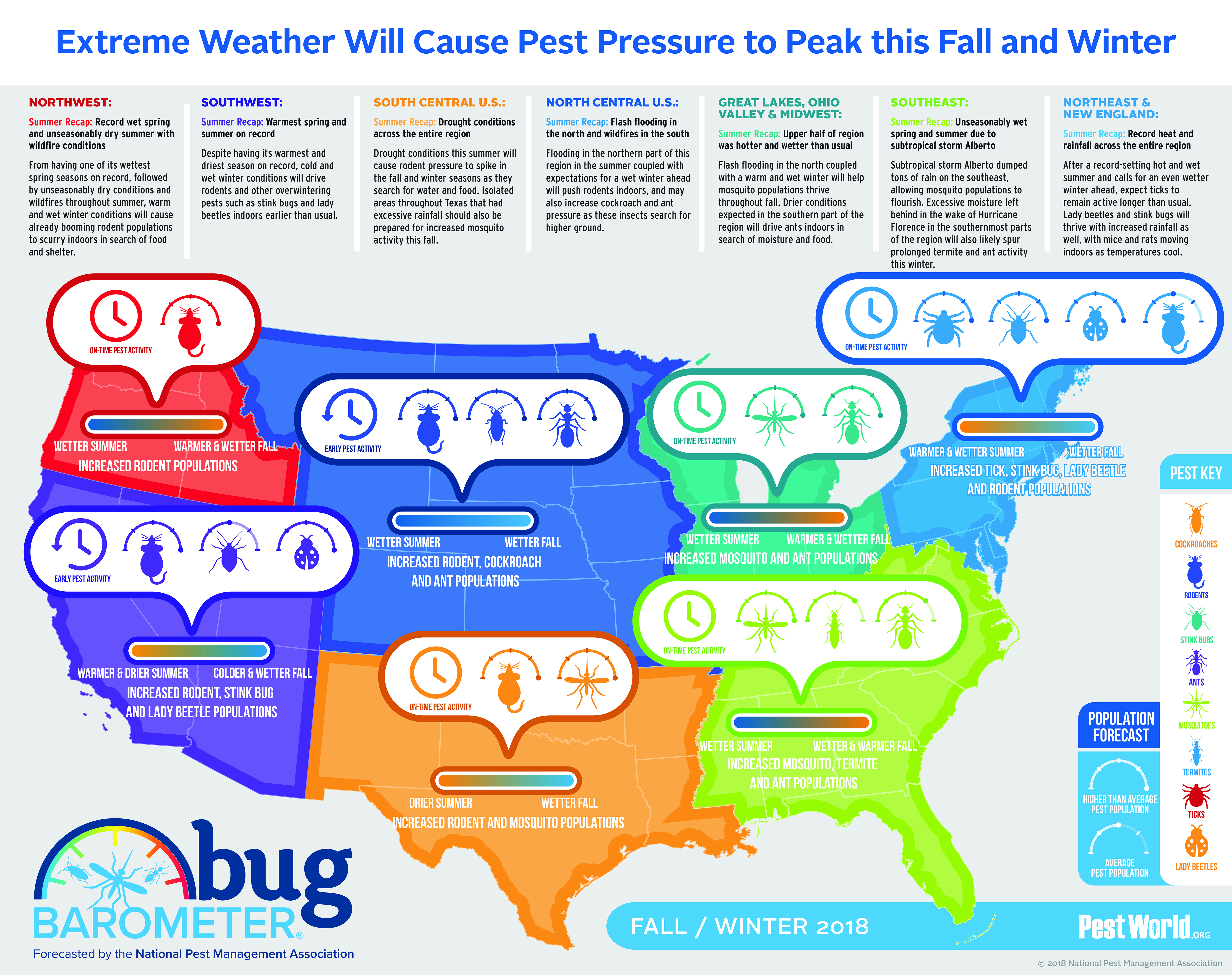Delving Into Advanced Methods Employed By Insect Management Professionals
Delving Into Advanced Methods Employed By Insect Management Professionals
Blog Article
Content Develop By-Josephsen Stewart
Are you tired of depending solely on sprays to deal with insects in your house or workplace? While sprays can work, pest control experts have established innovative strategies that surpass merely splashing chemicals.
These methods not only provide more effective and resilient solutions, however likewise focus on decreasing making use of harmful pesticides. By discovering these advanced methods, you will discover a whole new globe of insect control methods that are not only effective, yet additionally eco-friendly.
So, are you all set to take your insect control video game to the following level?
Integrated Pest Management (IPM)
If you're seeking an efficient and environmentally-friendly method to pest control, Integrated Insect Monitoring (IPM) is the service you need. IPM concentrates on long-lasting prevention and monitoring of insects, instead of just relying upon chemicals. This approach considers the particular needs and actions of insects, in addition to the surrounding setting.
By utilizing a mix of strategies such as organic control, environment manipulation, and targeted pesticide use, IPM aims to reduce the dependence on chemical treatments and lessen harm to non-target organisms.
One crucial element of IPM is monitoring and determining pests accurately. This involves regularly checking and assessing the pest population, along with recognizing the certain varieties existing. By comprehending the biology and behavior of parasites, parasite control specialists can create targeted approaches to interrupt their life process and lower their numbers.
An additional crucial element of IPM is utilizing non-chemical control methods whenever feasible. This can consist of physical barriers, such as mounting displays or sealing fractures and holes, to prevent pests from getting in buildings. Additionally, cultural practices, like appropriate sanitation and waste monitoring, can aid get rid of parasite food resources and breeding grounds.
When pesticides are needed, IPM concentrates on using them carefully and as a last hope. This means choosing the least hazardous and most effective option, applying it exactly and just to affected locations, and adhering to all safety guidelines. By minimizing chemical usage, IPM decreases the possible dangers to human health and the setting.
Biological Control
To additionally enhance the performance of Integrated Insect Monitoring (IPM), the next subtopic we'll explore is the approach of organic control. This technique utilizes all-natural killers or parasites to control insects.
Here are 4 crucial facets of organic control:.
1. Introduction of all-natural opponents: In this method, valuable insects or organisms are presented to the area infested with bugs. These all-natural adversaries prey on the parasites, assisting to reduce their populace.
2. Preservation of all-natural enemies: Rather than introducing brand-new microorganisms, this approach focuses on creating an ideal environment for existing advantageous pests. This can be achieved with supplying food, shelter, and water sources.
3. Enhancement: Right here, the number of all-natural adversaries is raised artificially by reproducing and releasing them into the infested location. This aids to rapidly reduce the pest population.
4. Push-pull approach: This technique incorporates repellents and attractants to adjust the behavior of insects. Repellents push insects away from plants, while attractants tempt them in the direction of catch crops or locations where they can be easily controlled.
Environment Adjustment
Habitat alteration plays a crucial function in insect control by changing the setting to prevent bug invasions. By making changes to the physical qualities of an area, you can develop an inhospitable atmosphere for parasites, making it harder for them to make it through and flourish.
One usual approach of habitat alteration is eliminating or minimizing possible food resources for insects. This can consist of proper waste monitoring, securing containers, and tidying up food crumbs.
Furthermore, getting rid of or decreasing areas of standing water can aid regulate insects like mosquitoes.
Altering the landscape by cutting trees and bushes far from structures can likewise prevent insects from accessing your residential property.
Final thought.
So there you have it - the sophisticated techniques used by pest control experts surpass simply spraying chemicals. Integrated discover this info here (IPM) combines numerous approaches to efficiently control insects, while organic control takes advantage of all-natural adversaries to maintain bug populaces in check.
Environment alteration likewise plays an essential function in protecting against bug infestations.
Did you know that according to a research study, applying IPM methods reduced pesticide usage by an average of 71%? This not just secures our wellness and the setting but additionally saves cash in the future.
